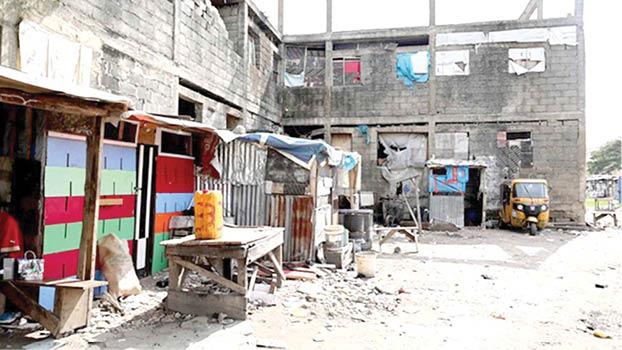Abuja, Nigeria’s seat of power, is renowned for its stunning architecture, sleek streets, and status as Africa’s fastest-growing city.
However, beneath its glossy exterior lies a stark contrast—a growing number of residents grappling with the harsh realities of poverty and homelessness. Drawn to the city by the promise of a better life, many Nigerians find themselves without shelter, taking refuge in abandoned buildings and vehicles.
The influx of people into Abuja is evident in data from Macrotrend, which reveals that the city’s population surged by over 22.81% from 2020 to 2024, reaching 4,026,000. Despite its allure, Abuja’s soaring cost of living has forced many into desperate circumstances. For instance, an abandoned hospital in Utako now houses over 100 people, including children, living in squalor without basic amenities.
READ ALSO: Heavy Rains in Jigawa Cause Major Flooding, Leave Many Homeless
Among them is Binta Yahuza, a 42-year-old who fled insecurity in Katsina State, only to face the brutal reality of homelessness in Abuja. Binta is one of 24.4 million Nigerians classified as homeless in 2023, according to the World Population Review. She struggles daily to make ends meet, selling tofu while her children assist by frying yam.
Similarly, 30-year-old Chioma Sunday and her family have been living in an abandoned building after their shanty home was demolished. Despite her efforts to sustain her family by selling moi moi, the rising cost of living has forced her to send two of her children to the village.
Others, like taxi driver Basiru Isah, have turned their vehicles into makeshift homes. The rising fuel prices and high cost of living have made it impossible for them to afford rented accommodation, compelling them to sleep in their cars.
READ ALSO: Scottish Government Declares Housing Emergency Amidst Rising Homelessness and High Rents
A 2019 Central Bank of Nigeria (CBN) report cited a housing deficit of over 17-22 million units, driven by poverty, overpopulation, and urban migration. By 2023, this deficit had grown to over 28 million, according to Dataphyte. The lack of affordable housing, compounded by high-interest rates and the impacts of insecurity, banditry, and natural disasters, has left many Nigerians struggling to secure a stable home.
For people like Sunday Dako and Shehu Abdullahi, both taxi drivers, their cars have become their only refuge. They grapple with the dual burden of high fuel costs and unaffordable rent, forcing them to choose between sustaining their livelihoods and providing shelter for their families.
READ ALSO: Jay Jay Okocha Builds 100 Bungalow Houses For The Poor And Homeless People
The stories of Abuja’s homeless reveal a side of the city that is often overlooked—a reality where the pursuit of a better life has led to unforeseen hardships, leaving many to survive in the shadows of the nation’s capital.



